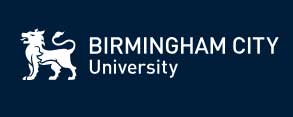About Nursing - Learning Disability - Bsc (hons) in Birmingham City University
Our aim is to develop you into a graduate nurse who is able to work flexibly across a range of settings and meet the health needs of the whole person throughout their lifespan. We will work with you on your development to help you become a skilled, knowledgeable, emotionally intelligent nurse, able to lead and co-ordinate compassionate, evidence-based, person- and family-centred care while working as an integral member of interdisciplinary teams.
The university-based elements of the first two years of your course are integrated, with all fields of nursing working together. In your final year, the theory you learn will be specific to learning disability nursing. You will study five modules each year. In year one, you will complete a year-long practice module which will prepare and support you to develop your confidence and competence in practice as you work towards independently leading and co-ordinating care.
In your first year, you will gain theoretical and practice knowledge to develop a range of key skills. This will include: exploring the evidence that underpins person- and family-centred care; professional values; self-leadership; and the role of the registered nurse. Second year modules will further enhance your first-year learning and explore evidence-based complex care incorporating a wide range of research, skills, team leadership and principles of co-ordinating care. During your third year you will continue build on your previous learning and develop proficiency in learning disability nursing. The modules you study will develop you as a leader who uses research-informed critical thinking to co-ordinate care, supervise other health professionals and gain confidence in the safe management of medication. You will also have access to personal tuition throughout the course which will enrich your learning experiences and will enable to reflect meaningfully on your practice and the development of your individual field identity.
Your practice placements will be specific to your field, learning disability nursing, throughout the three years. To help you become a more rounded nurse, you will also have opportunities to learn across the four fields of nursing. Your placement learning experiences may be within community, hospital or home environment settings and at a location anywhere within the West Midlands and potentially into neighbouring counties. While on placement you will be supported, supervised and assessed by practice and academic staff to develop your knowledge and skills.
We are committed to providing excellent, innovative, learning, teaching and assessment experiences through the use of technology, which we use to enhance your learning, through lectures, seminars, skills simulation and virtual learning. Engaging with practice partners and service users is also integral to our approach.
Our BSc (Hons) Nursing course has been designed to comply with the new Nursing and Midwifery Council (NMC) standards (2018) meaning that successful completion of this course makes you eligible to apply and be entered onto the NMC register in one of the four fields of nursing: Adult, Child, Learning Disabilities or Mental Health.
IELTS 6.0 overall and minimum 5.5 in all bands
Higher secondary academic level qualification including mathamatics as a subject
Birmingham City University Highlights
| Institution Type |
Public |
| Student Population |
25,800 |
| FAFSA Code |
G12215 |
| Application Cost |
20-26 GBP for UCAS |
| Accreditation |
ACCA, CIMA, RIBA, and, many others |
| Average Cost of Attendance |
18,086.5-27,575.5 GBP |
Birmingham City University Average Tuition fees and Other Expenses
This figure is an estimate of the basic living costs during the first nine months of studies, which covers most expenses including average tuition fees.
| Items |
Amount per annum in GBP |
| Tuition and fees |
5,700-13,200 |
| Accommodation |
5,483-7,013 |
| Food |
2,600 |
| Books and supplies |
450 |
| Utilities like gas, laundry, electricity, etc |
2,355 |
| Transportation |
390 |
| Leisure/social activities |
600-960 |
| Miscellaneous such as TV license, telephone cost, police registration, subscriptions, etc |
490.5 |
| Insurance |
15-117 |
| Total |
18,086.5-27,575.5 |
